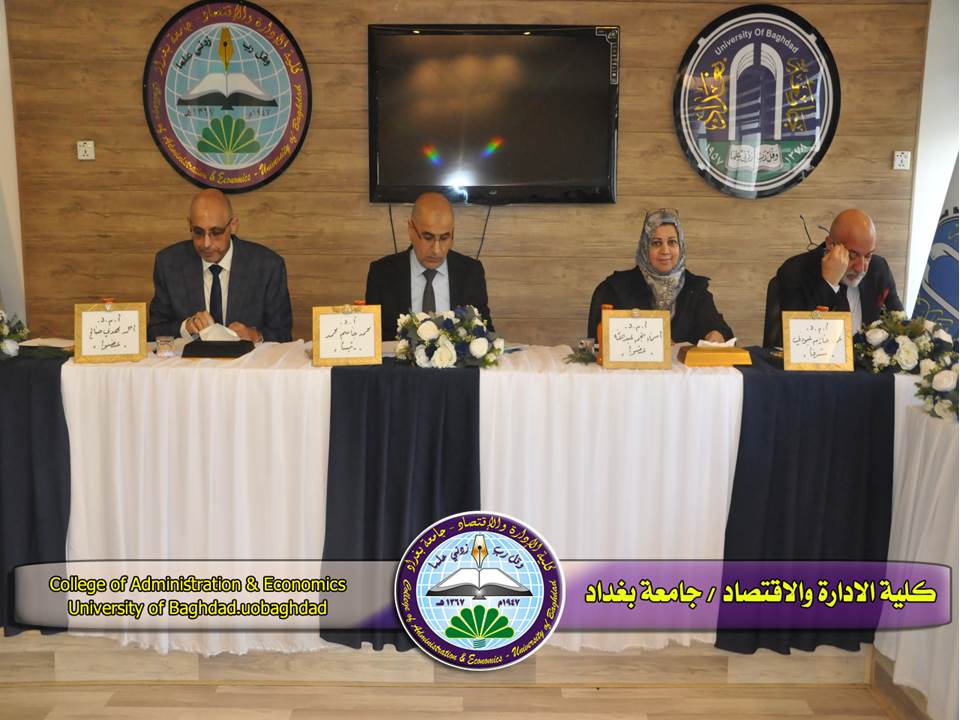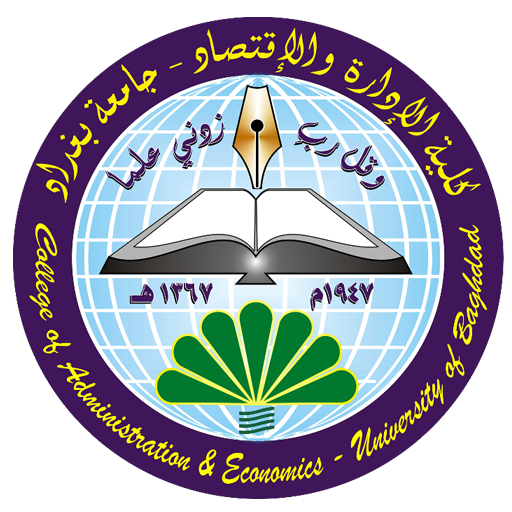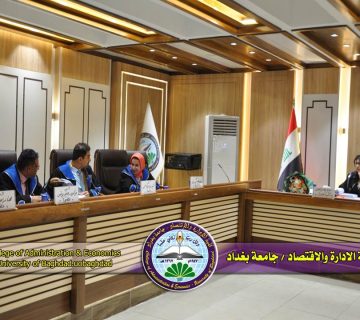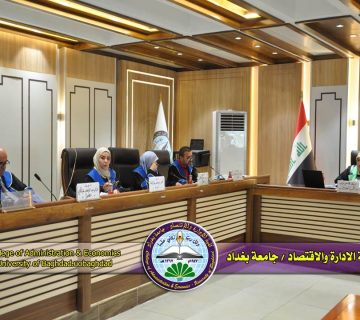The College of Administration and Economics at the University of Baghdad discussed , a master’s thesis in field of Statistics by the student (Ahmed Khuder Eleass ) and tagged with ( Comparison of Latent and Fuzzy Mixture Poisson Regression Models For Count Data With Application) , Under supervision of (Assist.Prof Dr. Emad Hazim Aboudi)
When observations come from a mixture of Poisson distributions, that is, observations consist of different subgroups or sources, classical Poisson regression models do not adequately represent the complex structure of the data, so that it is difficult to determine the number of components of the mixture and the appropriate assignment of each observation to its class. In this thesis, two Poisson mixture regression models designed for latent and fuzzy classes were compared. The Expectation Maximization (EM) algorithm was used to estimate the parameters in the latent class model, in addition to using the Genetic Algroithm (GALA) to improve the parameter values in the model . While the Fuzzy classification Maximum Likelihood (FCML) algorithm was used to estimate the parameters in the fuzzy class model, and the Genetic Algroithm (GAFU) algorithm was used to improve the parameter values in the model. On the experimental side, the comparison between these models is done through simulation experiments, where simulated data were used that were generated with four different sample sizes , and two cases were taken for the model, one of them with one explanatory variable. The other has two explanatory variables. The mean square error criterion was used for comparison. The results indicate the superior performance of the mixture Poisson regression model for the fuzzy class, as well as the superiority of the genetic algorithm used in this model, as it gave the lowest values of the mean square error (MSE) compared to other algorithms. On the applied side, the mixture Poisson regression model for the fuzzy class was applied to real data on the number of visits of patients with premature ovarian insufficiency (POI) to Al-Batoul Teaching Hospital (Infertility Department) in Diyala Governorate during a period of one year. The parameter values obtained by the genetic algorithm (GAFU) that were used in the mixture Poisson regression model for the fuzzy class were used to determine the categories and then predict in the event of new observations.











